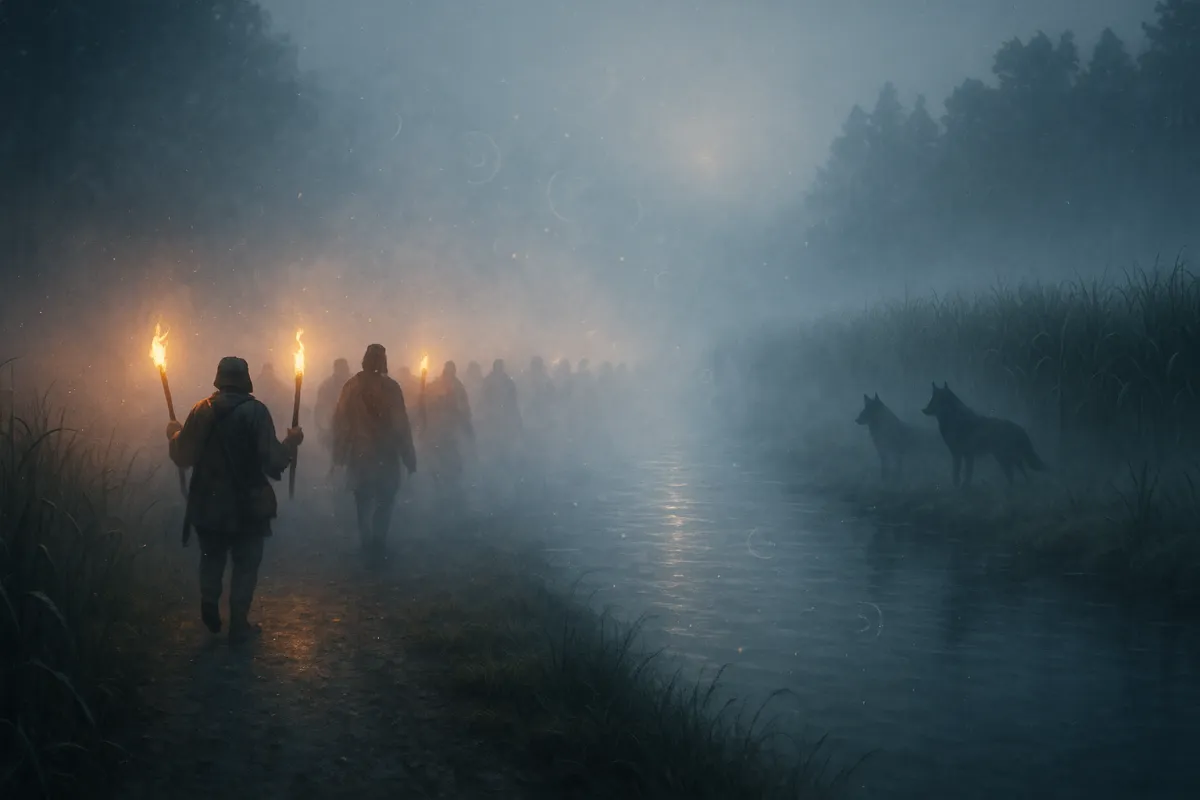
The March That Woke the River Part 2
“It was not the first time blood touched the earth, but it was the first time the earth answered back.”
When the first dozen fell, Makaya pressed both hands to the soil. He did not ask for rescue. He asked the land to remember who taught it to sing. The air changed. A hush like snowfall gathered in a place without winter. The Trail of Tears the slavers had mocked rose from its sleep, not the path of exile our enemies once wanted, but the waterway of return our elders had hidden in grief. It opened in reeds and fog, a mouth of moving light, and the Lupai Koyah drums rolled from inside it like distant thunder.
“Run where the water remembers,” Makaya called, and the line broke with purpose. Some held the soldiers back with hoes and faith. Some dragged the wounded. Some turned to face the guns so that mothers could carry children into the mist. A few were taken and judged by men who never learned to fear the sky. Heads lifted on poles along the road, a terror meant to close every throat. Yet even those faces became stars for us, constellations that showed where the hidden current runs.
The march did not fail. It split.
One half became a lesson the slavers told each other in shaking voices, a caution to steady their whips and bind their laws tighter. The other half stepped into the river’s memory and came out in the Mother’s Womb, where winter guards the door and summer waits inside. There the wounded learned to breathe again. There the Ancients spoke once more through snow and stone, renewing the Pact with a clause written in fire: we will shield the ones who carry freedom in their mouths.
Makaya did not cross with them. He turned back with a dozen to spoil the trail, to pull militia eyes away from the light. He was cut down at the cypress. They lifted his head with the others and thought they had silenced a drum. They did not know how rebirth works among our people. Years turned like pages. The river kept his name. The world called him Xavier when it gave him back to us.
What of the four families after the smoke? Dumisani became the keepers of a memory that heals and burns, a living archive that refuses to forget. Abebe kept the gates where the living and the dead hand each other messages. Adeyemi held the circle’s rim, where the teeth are. Idrissi, who once bartered whispers, took on the long penance of guarding the threshold they endangered. The Waya Ani Gawohi kept watch, and the snow learned our names.
When you walk the River Road today and see the fields shining like knives, press your palm to the dirt. If you listen with your ribs, you will hear the march that never ended. You will hear the footsteps that became a current and the current that became a sanctuary that moves. You will hear Makaya’s drum under the ground, telling you that freedom is not an event. It is a tide. It leaves, it returns, it lifts what it loves.
Carry this teaching home: the revolt lives where the river remembers. Some were taken. Many arrived. And the earth, once asked, has never stopped answering.
